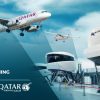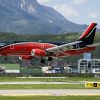 Aviation is a tool to connect people across different cultures and abilities worldwide, and every company in air travel must work to expand the accessibility of passenger air service so more people can experience the miracle of flight comfortably. The need to provide equal access to air travel is such an important and shared value that both United Nations conventions and the European Parliament have created laws aimed at ensuring airlines accommodate persons with disabilities. Both UN and EU laws frame regulations concerning passengers with disabilities in terms that grant these passengers rights, meaning that violations of these provisions would constitute discrimination. Despite these laws, airlines and airports occasionally make headlines that lead to government hearings and media scrutiny regarding discrimination.
Aviation is a tool to connect people across different cultures and abilities worldwide, and every company in air travel must work to expand the accessibility of passenger air service so more people can experience the miracle of flight comfortably. The need to provide equal access to air travel is such an important and shared value that both United Nations conventions and the European Parliament have created laws aimed at ensuring airlines accommodate persons with disabilities. Both UN and EU laws frame regulations concerning passengers with disabilities in terms that grant these passengers rights, meaning that violations of these provisions would constitute discrimination. Despite these laws, airlines and airports occasionally make headlines that lead to government hearings and media scrutiny regarding discrimination.
Aviator Airport Alliance, a full-range provider of aviation services at 15 airports across the Nordics and part of the Avia Solutions Group family, ensures airlines can accommodate persons with disabilities daily as part of their behind-the-scenes work in airline operations. Kjell Mathisen, Corporate Training Manager at Aviator, outlines the details of what goes into ground handlers' efforts to provide accessibility.
"When we meet or assist a passenger with a disability the most important thing is respect; everyone should be able to access and fly comfortably, and we work to increase accessibility in several ways," Mathisen says. "There isn't a single person who works to make these accommodations; we all work together to provide the best travel experience."
Mathisen explains that there are multiple stages of training on various tasks to enhance accessibility. There are different levels of detail and quality of customer service instilled in each stage to address passenger needs. Every staff member at Aviator receives additional training specific to serving passengers with disabilities, and Aviator uses agreed-upon international guidance to develop this training for airport passenger service and ramp agents.
"Our training to accommodate persons with disabilities comes from organizations like the International Civil Aviation Organization ICAO), the International Air Transport Association (IATA), the European Civil Aviation Conference (ECAC), as well as other regulations and recommendations, which provide which provide a code of conduct we must follow," Mathisen says. "This global standard is reinforced by local regulations and an understanding of best practices we have developed through our experience to ensure passengers receive what they need to fly."
While IATA and other regulators and organizations such as ECAC set a universal standard for training, Aviator, as a full-range service provider, works with several airlines at each airport, with each having different procedures. Mathisen notes that passengers with disabilities inform airlines when they need accommodations such as wheelchair transport.
"We receive information on the services required within hours, or sometimes only just in-time before every flight, and occasionally, there is no information provided at all," he says. "We must always be ready to adjust and cater to passenger needs."
Beyond passenger service, Aviator also supports those with disabilities on the ramp, as wheelchairs and mobility devices are stored in the aircraft's cargo bay. Mathisen states that ground handlers handle all types of mobility devices several times daily.
"When equipped with batteries, mobility devices are regulated as dangerous goods, requiring special regulations and treatment for their flights," Mathisen says. "This is why we train everyone to understand and share a culture where accommodating and handling these devices is important, ensuring there is no single point of failure."
Mathisen adds that some airports the company handles passengers with disabilities more frequently.
"We see increased traffic and offer more accommodations at our stations where there are large hospitals, such as university or specialist hospitals," Mathisen says. "Many passengers fly to access medical care at this hospital, and we definitely see an uptick in service required, so it's important that we can provide this connection to medical care."
Mathisen adds that the carriers will also see increased traffic at its other stations related to leisure trips, where the ground-handler and airport service provider’s accessibility helps make vacations possible.
Regardless for reason for the trip such as traveling for leisure, medical care, reunion, no matter the circumstance, Mathisen emphasizes his concern for the experience of passengers with disabilities, training Aviator staff to be flexible and provide the best accommodations.
"This is an opportunity to build a relationship with our passengers, and we use the increased interaction we have with passengers to foster a positive relationship through this customer service."





